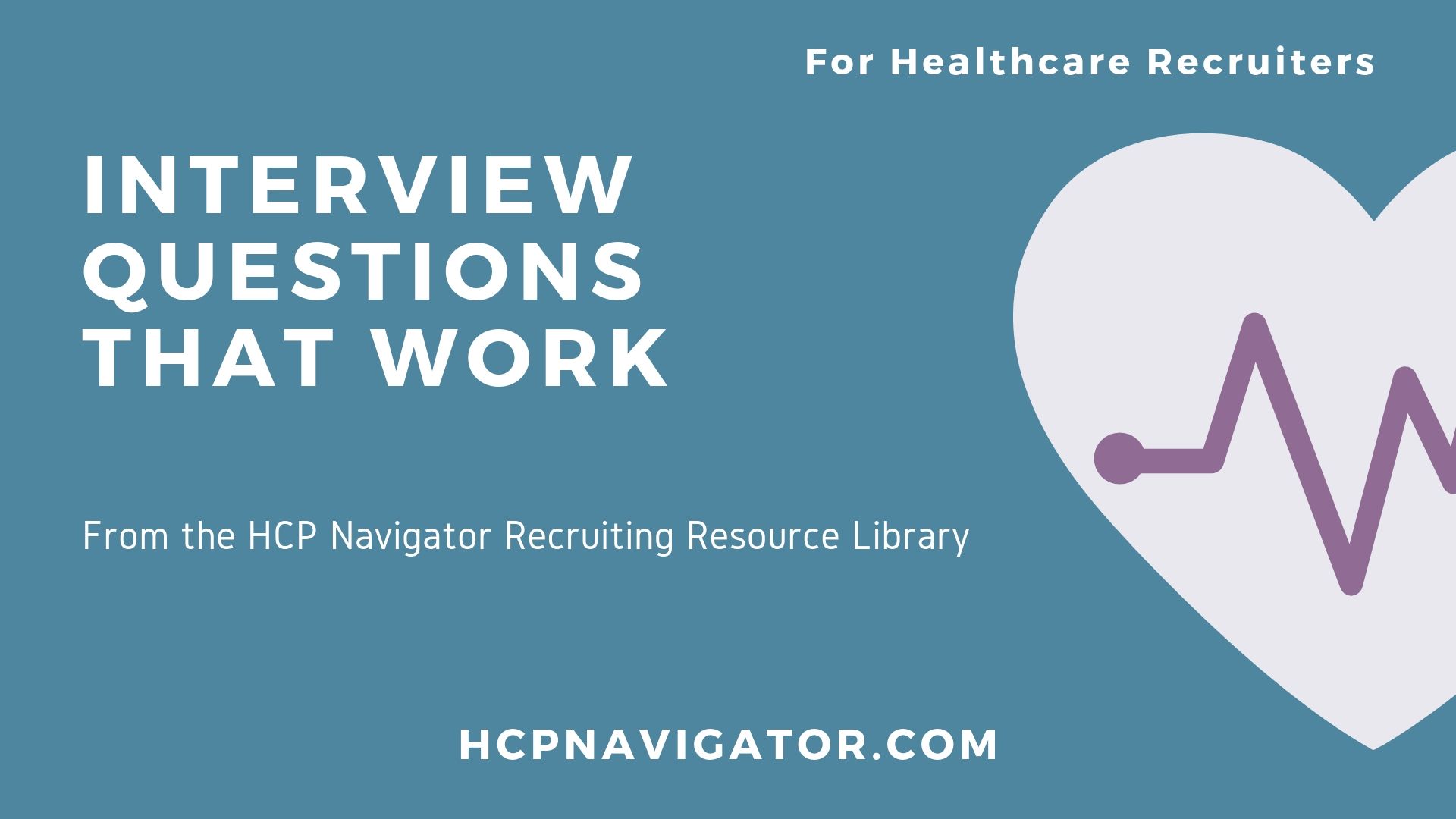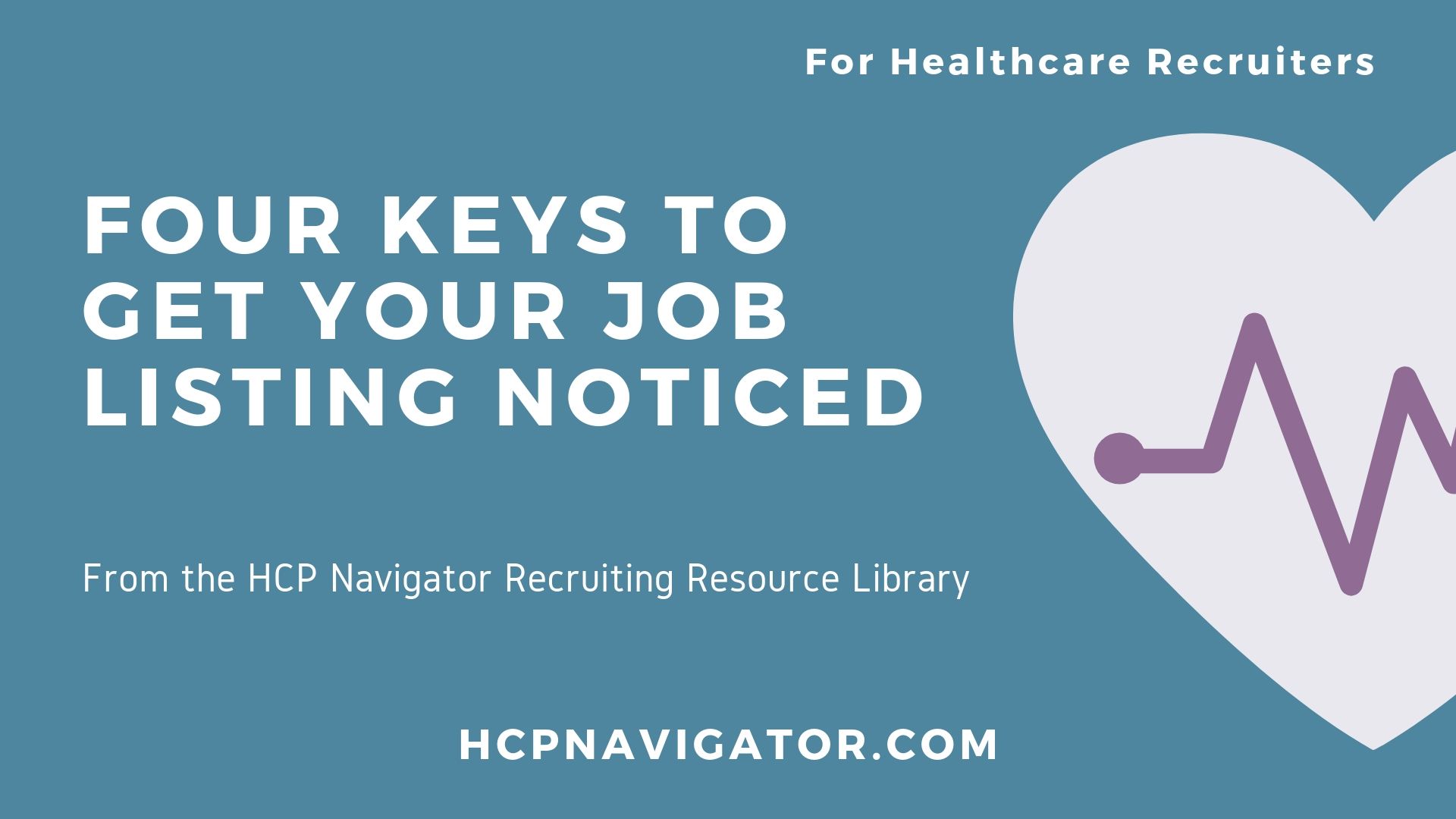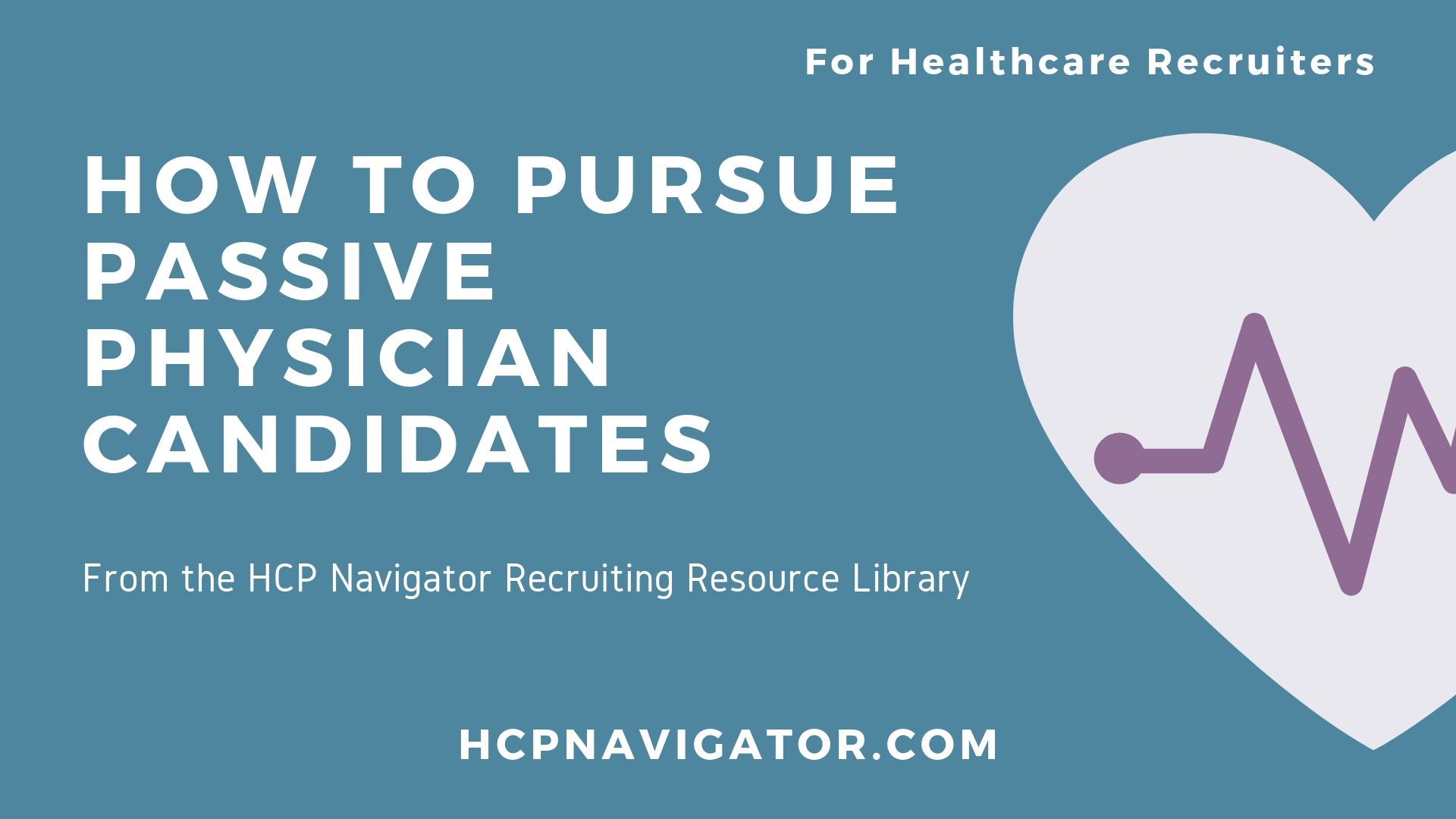
Interview Questions that Work for Healthcare Recruiters
Today’s physicians are required to have more than strong clinical or technical skills. They need to be a good cultural fit for the facility. They need to relate well with patients, complement the community, and provide professional patient care. They also need to take the time to listen to their patients, take care of them, and attempt to understand what they are experiencing. The more a physician recruiter knows about a healthcare candidate, the better they will be able to assess these softer skills.
PHYSICIAN INTERVIEW
The interview lies at the core of the evaluation and hiring process for healthcare providers. This face-to-face encounter enables you to determine whether a healthcare candidate’s motivations, characteristics, and personality are the right fit for the role. The interview also allows you to get to know the candidate beyond their resume, letters of recommendation, and medical education.
As a healthcare recruiter or physician recruiter, there should be three types of questions on your mind when going into an interview. These three are motivational, behavioral and situational questions. Answers to these questions will help you discover what motivates your candidates, how they have behaved in the past, and how they would perform in specific situations in the future.
MOTIVATIONAL
Motivational questions attempt to ascertain beliefs, preferences and what the individual finds pleasing and displeasing. You can determine if the healthcare candidate’s interests and attitudes about work are consistent with your community’s values and expectations. For example, some individuals need structure to their day, while others thrive on chaos, variation, and originality. These questions will help you identify whether the organizational culture will support your candidate’s needs. They will also point out whether your candidate can deliver what your organization expects. The questions below are some examples of motivational questions.
“What do you love doing at work?” By reviewing the healthcare candidate’s resume and letters of recommendation, you probably have a good sense about what the physician is qualified to do. However, it’s important that you understand what they enjoy doing. This question gives you the chance to understand what your candidate is truly passionate about. Another way to phrase this question would be, “If money were no object, what would you do with your life?” Someone who is doing what they love will be far more invested in overcoming the daily challenges faced by physicians.
“What do you dislike doing at work?” On the opposite end of the spectrum, just as it’s essential to understand what your healthcare candidate wants to do, it’s equally as important to know what they don’t want to do. Candidates, unless prompted, rarely talk about what they don’t want to do during an interview. They are focused upon making a positive impression and demonstrating their capabilities. This question may catch your candidates off guard and encourage them to open up a bit. Since you know the job, the organization, and the culture best, their response to this question may indicate whether the candidate is a good fit.
“What compelled you to choose this profession?” While money may be a motivating factor for many physicians, nobody wants to hear this as the primary reason why they went into medicine. By asking this question, the candidate will have the opportunity to reflect upon their values and goals. This question allows the candidate to speak about their inspiration and demonstrate their capacity to provide service and help humanity. For example, my wife’s colleague related his answer to this question. He said that he had always wanted to be a doctor because he wanted to be just like his mother and help others. His mother was a physician and his lifelong inspiration.
“Why are you interested in our practice?” This is another good question to further uncover the healthcare candidate’s motivations and determine how much research they did on your company. They should be able to express what they have learned about your organization or practice. In addition, you want them to be able to connect how their interests relate well to your organization. For example, if the candidate has relatives nearby or went to college locally, then they may have a geographical motivation for your area. This also gives them a chance to speak a little about why they like the practice, including the size, doctors’ reputations, and facility culture.
BEHAVIORAL
Behavioral interview questions ask the candidate to describe an actual experience or something they have done in the past. These questions delve into how candidates handled past situations and help you learn about their potential ability to perform in a future position. They also push candidates past textbook answers by forcing them to convey personal accounts. These responses tend to be especially significant because actual experience is a powerful predictor of future behavior.
Below are ten examples of behavioral interview questions. These questions frequently give candidates the opportunity to use the STAR technique in answering the question. STAR stands for Situation, Task, Action, and Result. Candidates can answer these questions by describing the past situation, discussing the task they had to accomplish, explaining the actions they took, and finally sharing the result of their actions.
- Tell me about a time when you had a medical disagreement with a colleague or supervisor. How did you handle the situation?
- Talk about a time when you received critical feedback. How did you deal with it?
- Walk me through how you convey complex material or directions to patients.
- Describe a time when you made a mistake and how you resolved it.
- Tell me about an instance when you had to deal with an upset patient. How did you handle the situation?
- Describe a time when you encountered a stressful situation. How did you manage the event and what was the outcome?
- Describe an occasion when you predicted likely problems and offered risk-mitigating processes as an alternative.
- Give me a detailed instance of a time when you had to adapt to a directive with which you did not concur.
- Describe a time when you dealt with a difficult patient. What made the patient difficult and how did you resolve the situation?
- Tell me about a time you attempted to accomplish something and failed. How did you cope with the outcome?
SITUATIONAL
Whereas behavioral questions emphasize the past, situational interview questions focus on the future and ask hypothetical questions. They assess how well the healthcare or physician candidate can evaluate a proposed problem, include others, or acquire and integrate additional information in the decision making process. They are intended to highlight more of the candidate’s analytical and problem-solving skills, as well as how they handle challenges with minimal notification or preparation. Below are six examples of potential situational interview questions.
- What would you do if your patient disagreed with your diagnosis based upon something they read online?
- What would you do if you realized you made a mistake in treating a patient?
- How would you deal with a difficult patient?
- How would you handle conflict with colleagues? How would you handle conflict with your supervisor?
- How would you make patients comfortable discussing their medical history?
- How would you deliver negative test results to a patient?
IN SUMMARY
Professional qualifications and certifications are significant, but it’s important to remember that there is much more to the candidate beyond what’s on their resume or cover letters. You must evaluate how well they relate with patients, culturally fit in with the community, and professionally represent the organization. The interview lies at the center of this evaluation process, and it’s the questions you ask that will allow you to discover whether a candidate’s motivations, past behaviors, and situational problem-solving skills are the right fit for the role.
If you are struggling to source candidates in today’s difficult recruiting environment, HCP Navigator can help. Check out our family of products and services proven to help healthcare recruiters find, track, and hire quality candidates. You can get started right away with HealthcareJobFinder, the no-cost job board where jobs noticed.
Finally, don’t forget to sign-up for our newsletter to get the latest additions to HCP Navigator’s Recruiting Resource Library.
Stay Informed
Sources:
http://www.medicaleconomics.com/business/5-interview-questions-your-next-physician-hire
https://comphealth.com/resources/10-behavioral-interview-questions-ask-physicians/
https://comphealth.com/resources/physician-interview-questions-and-answers/
https://www.mdlinx.com/internal-medicine/article/2788



